
Catching up with Philadelphia punk rock and skateboard icon Chuck Treece.
To say Philly’s Chuck Treece needs no introduction only means something if you’ve known him and his work as long as I have, or if, like me, you came up with him. Know how long I know Treece – the multi-instrument session cat and pro skateboarder? I knew him before he had kids. Before he was on the cover of Thrasher Magazine. Before he played on the unholy trinity of locally iconic hip-hop albums from Goats (No Goats No Glory), Schoolly D (Welcome to America), and The Roots (Organix). I might even know him before he started McRad, the legendary 80s hardcore band with a heavy hand in skronk jazz, funk, ska, punk, reggae, R&B and metal. But, I digress.
Today, Treece is up and running – as always – with a slew of musical projects whose basis in deep beats, hard punk and skateboarding is undeniable. I caught up with him, where else, at FDR Skatepark in South Philly with his son on a sunny day in COVID-19 land.
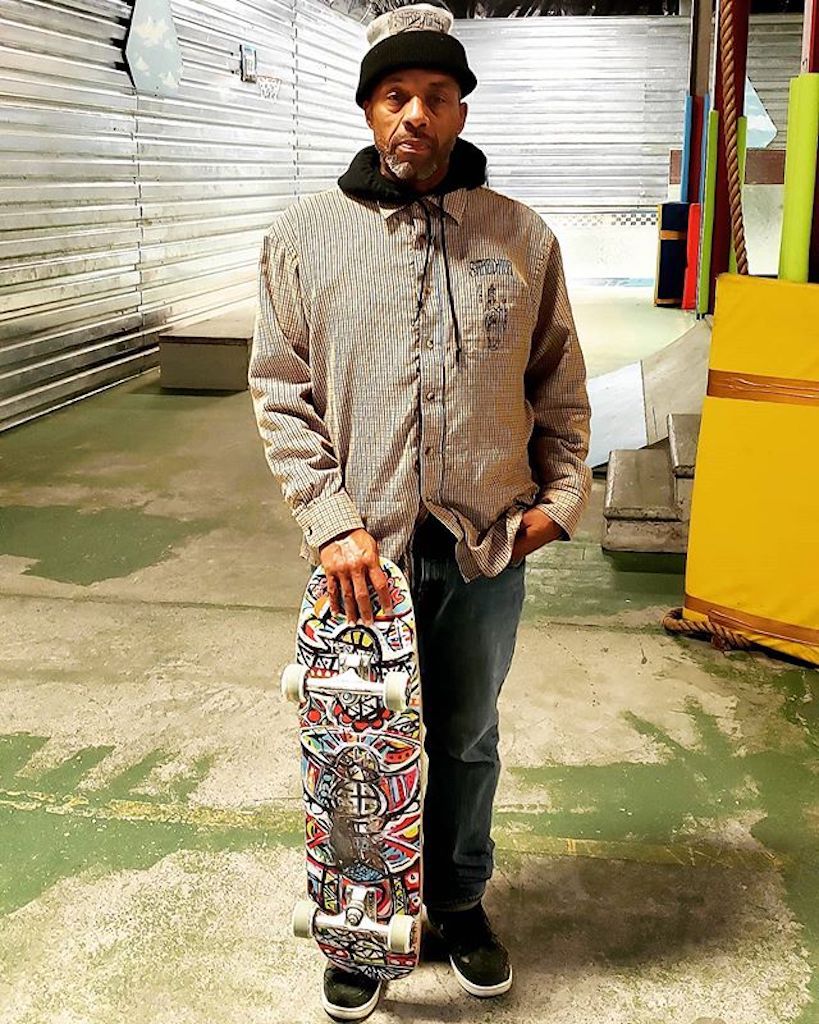
A.D. Amorosi: Be it boarding or punk rock, what does this pandemic mean to you?
Chuck Treece: Be it skateboarding or music, coronavirus has given me time to focus on what made sense to me as a younger person. Skateboarding, punk rock, reggae and jazz – those scenes were a smaller tribe of people oozing out information and the nuances on those lifestyles, what they could mean to people. Now my son is skating. This could be a different situation to those without this access. I’m thinking about the places that this happened as I’m still going to many of the same places. As an adult with a kid who also skates and also plays punk rock… I have access to that. Not everybody does. I’m focusing on the fun of all that. Having fun.
A.D. Amorosi: You’re gigging with your son, Kieran, who skates and plays drums and you dropped a song “See U Shine’n.” How did you guys get to that?
Chuck Treece: My older son, Isaac, played drums too, and we would all play in the house, together. Do little shows. They were 4 and 6 years old, and we always jammed together, but my older son sold his kit and became a DJ – he’s still dealing with beats and samples. My younger son, Kieran, joined School of Rock in the ages-5-and-under program in Downingtown, and we’d hang out and play music together. He had the fire for it. His sister would play with us too, but he was just a little bit more into punk rock and skateboarding, so I let him in. He learned. Our first shows were us just jamming, and never really wrote “songs” per se, until this summer.
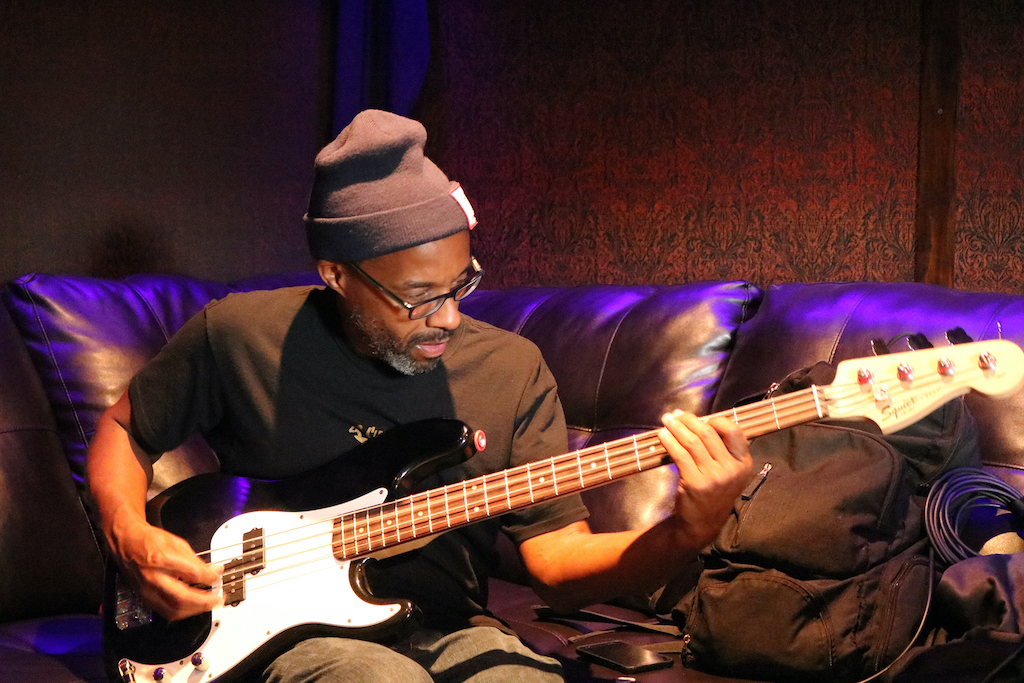
A.D. Amorosi: What was the first song you guys wrote together?
Chuck Treece: He, his sister Jurni and I wrote a song called “Be Your Friend,” a funny little song about traveling and be around your family, missing your family members. The one we just recorded, that’s on Distrokid, is “See U Shine’n.” We’ve been in the studio since, but that’s the first song we dropped.
A.D. Amorosi: Music comes naturally for your family as it did in mine. My dad played sax. His brothers all played guitars. His mother played violin His dad was a big band conductor. What would you have done if your kids came to you and said they wanted to be doctors or cops?
Chuck Treece: (laughs) I only utilized music as a building block with my children, just like basic counting. My daughters have the same amount of talent as Kieran. There’s just a different drive to getting on stage and wanting to try it again, and again. Some people don’t care to go through that. They all vibe on music, have the same sort of rhythm. It’s got to be something you want to do, be good for your soul. Isaac and Kieran just have a deeper love for it. No matter what they want to do, I’m going to say “Yeah,” and “Do what you want when you want to.” I was never a rigid person about having others follow me. I want people to follow their passion – especially my kids. Music is just a good way to start following your passion.
A.D. Amorosi: Are there additional songs coming soon from you and Kieran.
Chuck Treece: That song is easy going and straight up, not so aggressive guitar-wise. Now, we’re going back into the sound of the earliest McRad stages. It’ll be curious as to what a project like this could sound like now, because I was the age he is now when I was in McRad, Now that I’m the elder and he’s the young one, I want to bring more of a punk rock ethos into what we’re doing. Keep it simple. Like what I think a newer version of what the Ramones would be if it was just in my head.
A.D. Amorosi: Can I stop and say that I remember talking to you when you were having your kids, let alone hanging out before you had children. Dag. I’m aging with you.
Chuck Treece: Right?! Life is moving on.
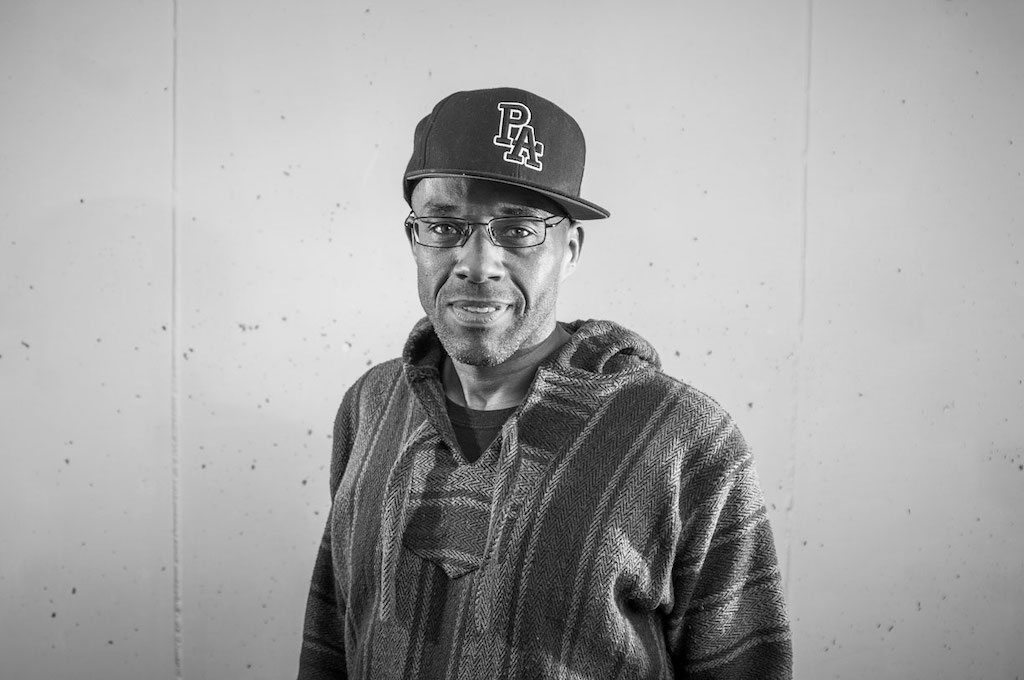
A.D. Amorosi: You have had a long relationship with Bad Brains. I know a minute ago you were doing work with H.R. Looks like you have something on The Family compilation Volume 3, with Chino Moreno from the Deftones and you doing something Bad Brains oriented. Connect some dots for me, please.
Chuck Treece: The Brendan Borek Foundation for Cancer was started in Avalon, NJ for a family losing their son. We did a bunch of shows there. Errand Boy, a skater out of Philadelphia who moved out West was the prime motivator for this. He started the compilations, like with Jack Johnson before he was known. I pulled additional friends together through email, and my connection with the Bad Brains is that I played drums for them in 1994. When the Brendan Borek Foundation asked if they thought I could get Chino to sing a Bad Brains song for a comp, Doc and Daryl from the Bad Brains themselves immediately joined in. We just went into the studio, played it four times, and kept it live. It was crazy to have Chino on a classic Bad Brains song – four takes. Bang.
A.D. Amorosi: Is H.R. (of Bad Brains) feeling better? The last time we tried to speak it couldn’t come together.
Chuck Trece: H.R. is living in Philly. We’re doing some home recording in Fishtown. Where he is now, as opposed to two and a half years ago, is night and day. Holistically, he got himself together. He’s ready to tour. He’s not into the whole aggressive punk rock lifestyle thing Where he’s at now, is seeing people happy when he sings his songs… when people come to see him. I’ve watched him go from being in his own head, totally, to singing out and happy. I watched a sold-out crowd at the Bowery in NYC sing his songs out loud. It was crazy. He was thrilled. He’s back.
A.D. Amorosi: How are you involved with Bedouin Soundclash and their new music?
Chuck Treece: King Britt had worked on a record of theirs before, and I auditioned for the band four years ago. They took time off, released one record, got back together, they gave a demo for new music, I listened, got together with them in New Orleans, and tracked the songs. This fall I had to homeschool my son, and I was prepared to go on tour with them until this all hit. The record is fun, the Preservation Jazz Hall Band were involved. Plus, it was good to be in New Orleans with King who produced this album. Another family situation.
A.D. Amorosi: Britt as family is a theme that’s coming up a lot lately as I’ve been in touch with Ishmael Butler who worked with King on the whole Digable Planet thing when they were here – hanging out at Silk City – in the 1990s. What bonds you and King beyond music?
Chuck Treece: Beyond music, when I was first coming up – I think we’re around the same age. But I was a kid from Delaware. You and Britt had the Stickmen, Bunnydrums, all that post-punk stuff in Philly. I’m almost in tears thinking about it.
A.D. Amorosi: I know exactly what you mean. Just when I feel like I’m getting jaded about it, someone brings up how fortunate cats like Britt and I are to have been there at that start. It comes to mind too when considering some of the cats we have lost, who have died too.
Chuck Treece: I was a black skate kid from Delaware coming up to Philly all the time. I would see the soul stuff like Chaka Khan, Minnie Ripperton, the Jackson 5 before I discovered ska and punk in Philly. Without Bobby Startup and WKDU and such, I might not ever have known the punk stuff. I’d just be blind to it all. Philadelphia let me in. Bobby brought the house down, and everybody who came after him owes him a great debt. All of what you guys did back then – very heavy. Very heavy content, You guys were an underground university. Philly was just ever-changing. So eclectic. You weren’t just talking to me – you were mixing it up with all the genres.
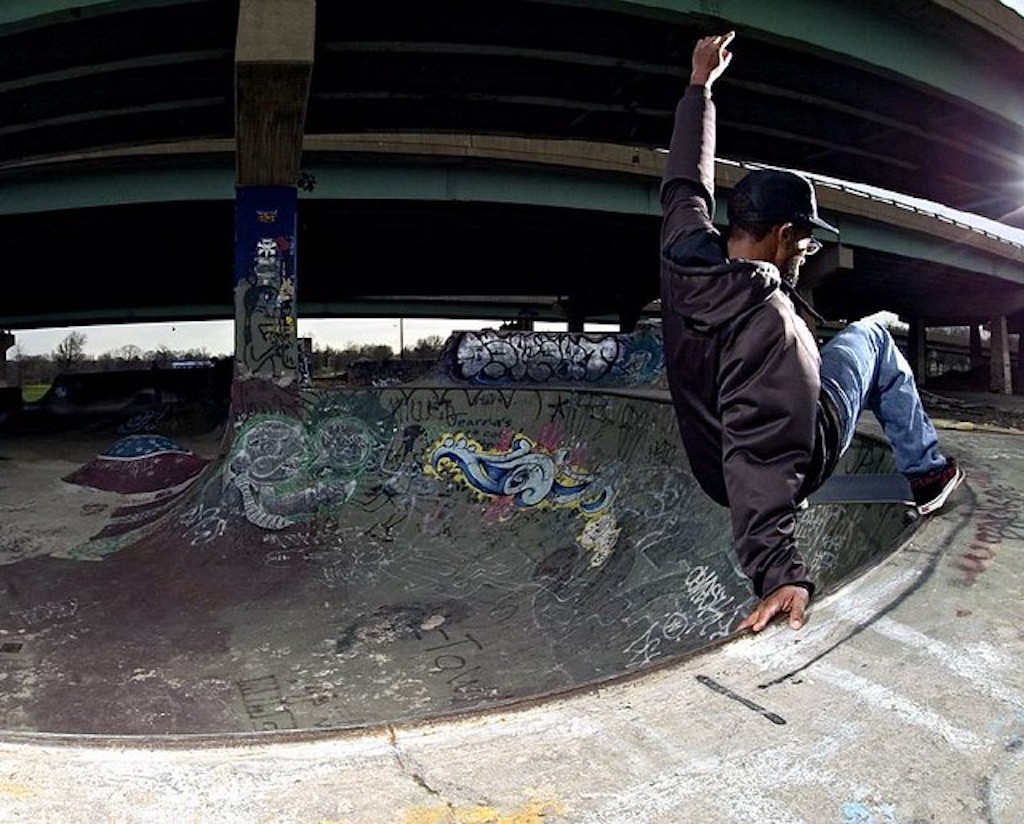
A.D. Amorosi: Thanks. I had too, as a white kid from Southwest Philly, all the R&B stuff, funk, and early rap – I cherish seeing Cameo opening for Parliament Funkadelic at the Civic Center in West Philly at the same time, say, the Stickmen were just ramping up at the Hot Club – to say nothing of the live Latin music scene happening on North Broad, and a very heavy duty jazz scene all over the place. The Long March Cafe. Bachhanal. The basement of the African History Museum. Then there was Bowie. Roxy Music. T. Rex. The glam scene too.
Chuck Treece: See what I mean?
A.D. Amorosi: What is this IMAX film you are working on, Watermelon Magic, with the Spring Garden Pictures crew?
Chuck Treece: Another friend I made called me to make a track where G. Love used to have a studio – 12th & Spring Garden – and they took the idea of an organic farm, and applied it to Philadelphia, a sustainable walkway mapped out for around the city. It’s still a vibrant idea, for things to be cleaner, from the air to the food to the environment. I was asthmatic as a child. Sticking through winters in this area, the gritty inner city, is not great for the lungs but built character, you know. Asthma cases, man. We have it high.
A.D. Amorosi: Before I let you go, coming full circle with everything that you are as a skater and as a punk rocker, you must be over the moon to see that McRad has its own wheel – the Weakness wheel. How’d that happen? It’s an honor.
Chuck Treece: The whole SpeedLab team from Maryland is built off of what’s happening in the early 80s and 90s and they want to bring that ethos back to the present. Since “Weakness” was written in 1984, and released in 1986, it has become an anthem for skateboarders. After the first version of McRad, I got more influenced by heavy metal – Dokken, Def Leppard – and I just wanted to bring something different to the table
A.D. Amorosi: The table you had already set long before that.
Chuck Treece: Right. That’s why I became a musician in the first place. That song happened in West Philly, and I have always told that story. Now they can live that story, live through the wheel. For guys who are 30 or 40, a big part of that market is re-hashing that which happened in the past. They’re keeping it underground, but professional.
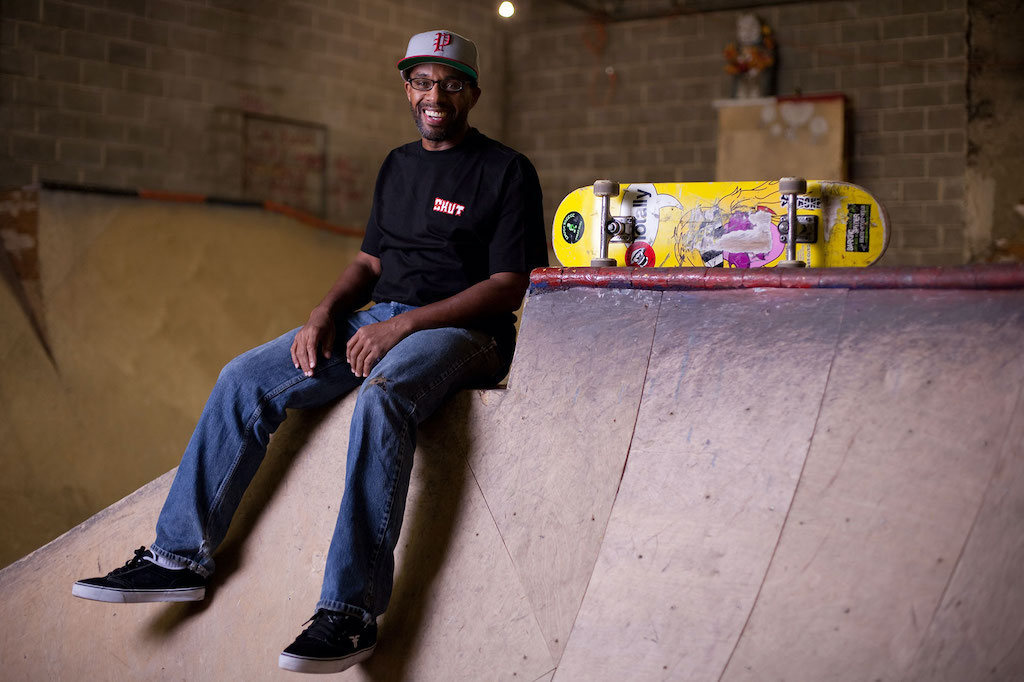
A.D. Amorosi: You’re tearing up thinking about Philly’s punk rock and skating past. What about the future? What about the foundation you’re building with your family for boarding and punk?
Chuck Treece: The future is for lobbying for as many public skateboard parks that are going up and can go up, as well as for a decent skateboard training facility If the Olympics ever get back into the swing of things, skateboarding could be a gift rather than a hindrance. Cities like Philly should have these training facilities, urban spaces. You get to learn the inner-city lifestyle. Everything about Philly saved me as a skateboarder. That’s why I’m so committed to the FDR Skatepark. After 25 years I can think of all of my memories, here and talk about it. But It took us time to lobby for it, like 15 years, to make it right. For now, it’s about making sure that kids who want to be part of the sport can, and that Philly should have a proper training hub when they’re ready.
About Post Author
Discover more from dosage MAGAZINE
Subscribe to get the latest posts sent to your email.
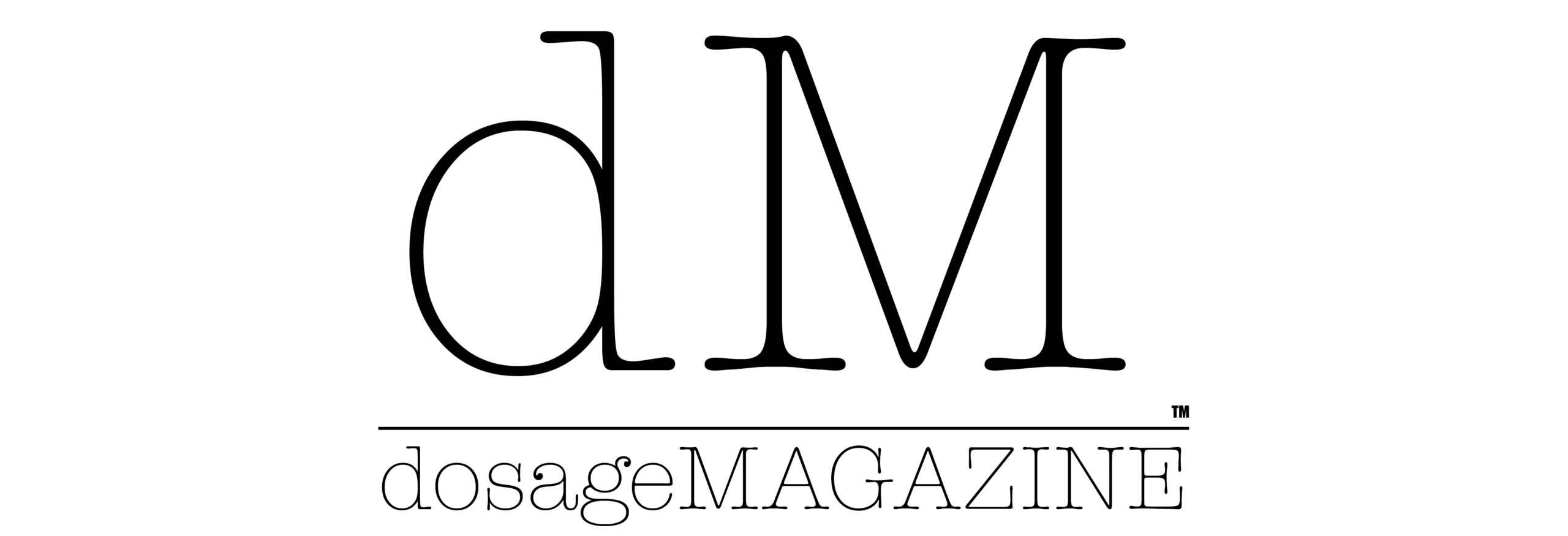
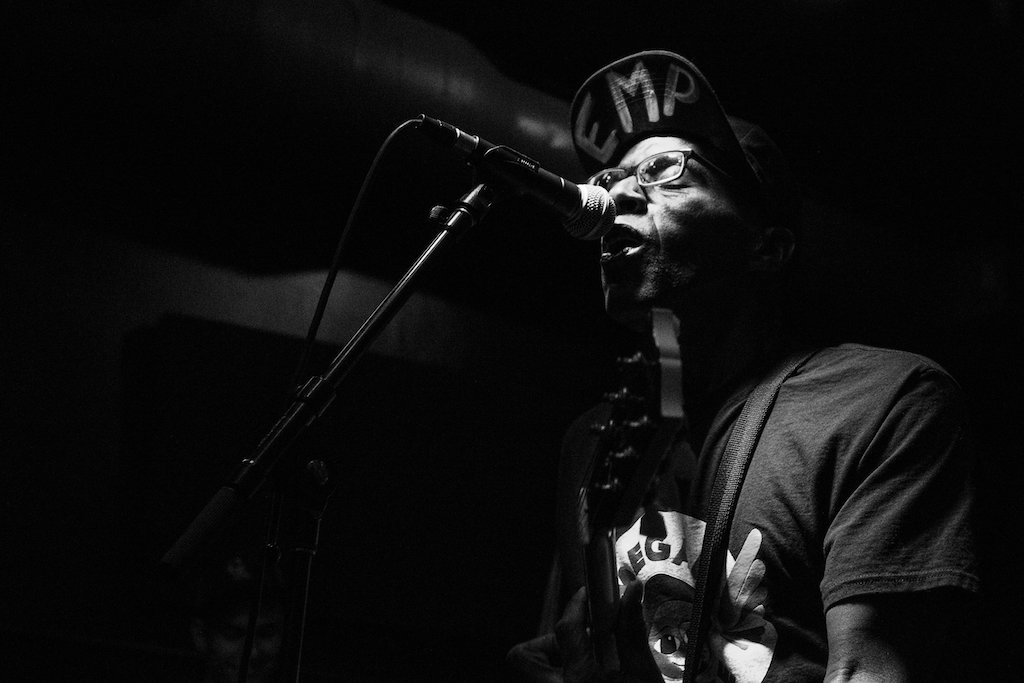
Even though Chuck is my nephew he is the man that you gave ear to he is one cool dude from way back and i grew up in the 60s and 70s and on and on and I met none no better because he could play or skate board with anyone and he got all my thumbs up forever. Thanks
Yeah Mon !
Chuck is your nephew? That’s fantastic…. did you know him as a kid kid? Was he always skating? Always into music?